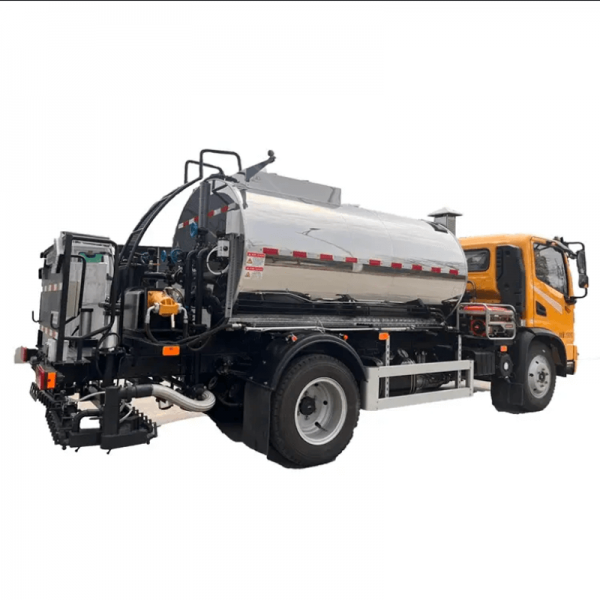Introduction:
Waste management has long been a pressing issue plaguing societies across the globe. With the ever-increasing population and rapid urbanization, the volume of waste generated has reached unprecedented levels. To combat this escalating problem, innovative solutions are required, and one such solution lies in the realm of garbage truck recycling. This article delves into the future of garbage truck recycling, exploring its potential, benefits, and challenges, and how it can revolutionize waste management systems.
1. The Current State of Waste Management:
Before delving into the future of garbage truck recycling, it is crucial to understand the current state of waste management. Currently, most waste is collected by traditional garbage trucks and transported to landfills or incineration plants. This approach often leads to environmental degradation, pollution, and resource wastage. Moreover, the ever-diminishing landfill space and the harmful emissions from incineration processes call for a more sustainable and efficient waste management system.
2. Understanding Garbage Truck Recycling:
Garbage truck recycling involves the transformation of traditional waste collection vehicles into advanced, technology-driven systems that facilitate the separation, sorting, and recycling of waste materials. These recycling trucks aim to optimize waste management processes and reduce the overall environmental impact by diverting recyclable materials from landfills and incineration plants.
3. The Potential Benefits of Garbage Truck Recycling:
a) Increased Recycling Rates: Garbage truck recycling has the potential to significantly increase recycling rates by enabling the sorting and separation of recyclable materials directly at the source. This ensures that valuable resources are not lost and can be reintroduced into the production cycle.
b) Reduced Environmental Impact: By diverting recyclable materials from landfills and incineration plants, garbage truck recycling helps reduce greenhouse gas emissions and environmental pollution. It also conserves natural resources by promoting the reuse and recycling of materials.
c) Improved Waste Management Efficiency: Recycling trucks equipped with advanced sorting and separation technologies can streamline waste management processes. This leads to increased efficiency, reduced collection costs, and optimized resource allocation.
d) Job Creation and Economic Opportunities: The transition to garbage truck recycling systems will require a skilled workforce, thus creating job opportunities in recycling, technology development, and related sectors. Additionally, the recycling industry can drive economic growth through the extraction of valuable materials from waste streams.
4. Technological Advancements in Garbage Truck Recycling:
The future of garbage truck recycling hinges on advancements in technology and the incorporation of innovative features. Several key technological advancements are set to reshape the sector:
a) Automated Sorting Systems: Cutting-edge sorting systems utilizing artificial intelligence and machine learning algorithms can enable garbage trucks to automatically identify and sort various recyclable materials. This reduces the reliance on manual sorting and increases the accuracy and efficiency of the recycling process.
https://www.heli-truck.com ) Sensor Integration: By integrating sensors into garbage trucks, real-time data on waste composition, fill levels, and contamination rates can be collected. This data allows for better waste management planning, route optimization, and improved decision-making processes.
c) Energy Recovery Systems: Garbage trucks with energy recovery systems can harness the energy produced during the recycling process, such as heat or biogas, and convert it into usable energy. This not only reduces the environmental impact but also makes the recycling process more self-sustainable.

d) Smart Fleet Management: Utilizing advanced fleet management systems, garbage truck recycling can be optimized through route planning, maintenance scheduling, and real-time monitoring. This ensures the efficient utilization of resources and reduces downtime.
5. Challenges and Considerations:
While garbage truck recycling holds immense potential, it is not without its challenges and considerations:
a) Initial Investment Costs: The transition to garbage truck recycling systems requires significant financial investments for research, development, and implementation. Governments, municipalities, and private waste management companies need to collaborate and allocate sufficient funds to support this transition.
b) Infrastructure Upgrades: Existing waste management infrastructure may need to be upgraded or retrofitted to accommodate the new recycling technologies. This includes the construction of recycling facilities, waste sorting centers, and the installation of supporting equipment.
c) Public Awareness and Participation: Successful garbage truck recycling initiatives rely on active participation and cooperation from the public. Raising awareness about the importance of recycling and encouraging individuals to segregate waste at the source are crucial to the success of such programs.
d) Legislative Support: Governments need to implement supportive policies and regulations that incentivize garbage truck recycling. This includes providing financial incentives, imposing stricter recycling targets, and creating a favorable business environment for waste management companies.
Conclusion:
Garbage truck recycling represents a promising solution to the ever-growing waste management crisis. With its potential to increase recycling rates, reduce environmental impact, improve waste management efficiency, and create economic opportunities, the future of garbage truck recycling is indeed bright. However, overcoming challenges related to investment costs, infrastructure upgrades, public awareness, and legislative support will be imperative in realizing this vision. By embracing and investing in garbage truck recycling, societies can pave the way for a sustainable and environmentally conscious approach to waste management.
